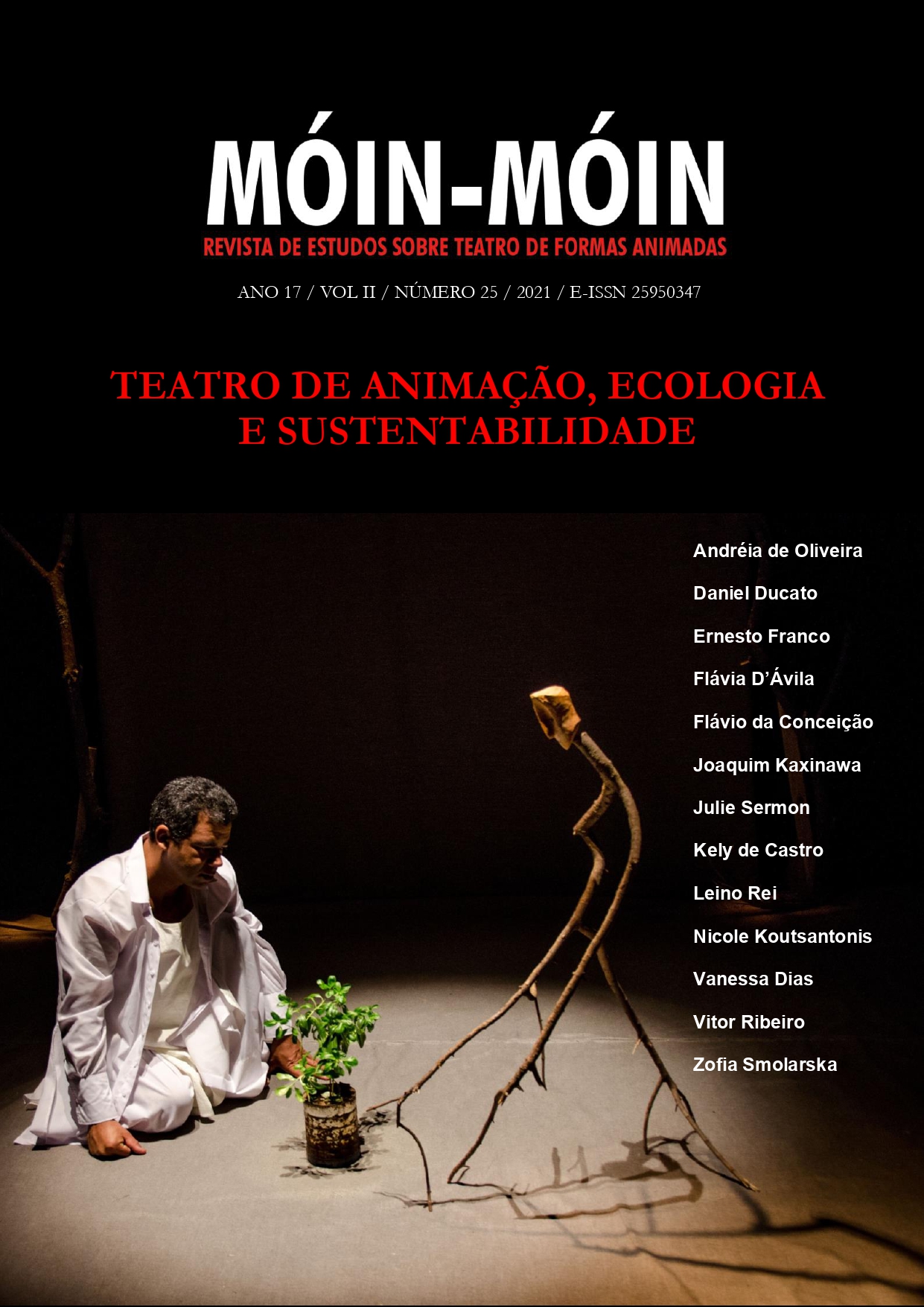Tossed on the seas of Visual Theatre: challenges to Puppetry’s survival as an independent discipline
DOI:
https://doi.org/10.5965/2595034702252021240Palabras clave:
Theater of Animated Forms, Puppet Theater, Visual Theater, EducationResumen
The goal was to understand the current situation and give an overview of Baltic and Nordic countries' puppet theater and puppet theater training traditions and whether and how the puppeteer's profile has changed recently. To get an idea of the trends in this area, the common ground of the different countries, I interviewed theatre makers from Finland, Sweden, Norway, Latvia, Lithuania, and Estonia. The title of this research is "Tossed on the seas of visual theatre: challenges to puppetry’s survival as an independent discipline."
To have a wider look at the puppetry, I also did two additional interviews. One of them with Marek Waszkiel - "Puppetry's challenges in the new visual theatre paradigm" and another one with Russian director Yana Tumina - "The puppeteer in the 21st century".
Descargas
Citas
HELGESEN, A. (2021). Interview conducted in written form. Tallinn, 13 April.
JUŠKĖNAS, V. (2021). Interview conducted in written form. Tallinn, 5 May.
NILSSON, H. (2021). Interview conducted in written form. Tallinn, 6 April.
PÖYHÖNEN, M. (2021). Interview conducted in written form. Tallinn, 13 April.
ŠOLIS, Ģ. (2021). Interview conducted in written form. Tallinn, 13 April.
TÕNISSON, T. (2021). Interview conducted in written form. Tallinn, 23 April.
Descargas
Publicado
Cómo citar
Número
Sección
Licencia
Derechos de autor 2021 Móin-Móin - Revista de Estudios sobre Teatro de Formas Animadas

Esta obra está bajo una licencia internacional Creative Commons Atribución 4.0.
Al enviar un artículo a la Móin-Móin Revista de Estudos Sobre Teatro de Formas Animadas y ser aprobado, los autores concuerdan en ceder, sin remuneración, los siguientes derechos a la Revista: los derechos de primera publicación y permiso para que la Revista redistribuya ese artículo y sus meta datos a los servicios de indexación y referencia que sus editores juzguen apropiados.
Los artículos cuyos autores son identificados representan la expresión del punto de vista de sus autores y no la posición oficial de la revista Móin-Móin.
Plagio, en todas sus formas, constituye un comportamiento antiético de publicación y es inaceptable. La Revista Móin-Móin se reserva el derecho de usar software u otros métodos de detección de plagio para analizar los trabajos enviados.
![]()
Este obra está licenciada con una Licencia Atribución/Reconocimiento-NoComercial 4.0 Internacional.






